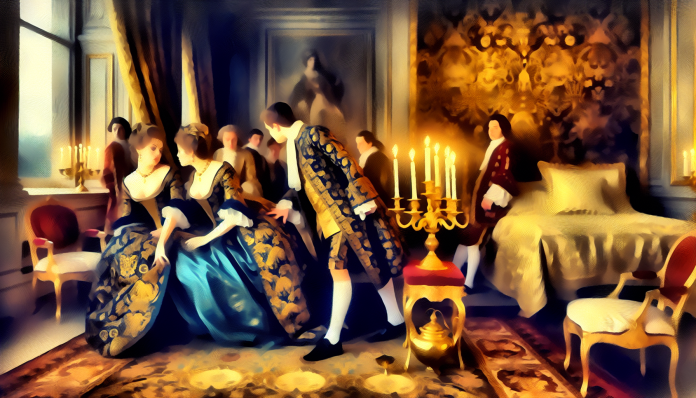Introduction
King Ludwig II, known as the “Fairy Tale King,” ruled Bavaria from 1864 until his mysterious death in 1886. Lauded for his breathtaking castles, most famously Neuschwanstein, Ludwig’s reign was marked by artistic patronage and romantic ideals. However, beneath this picturesque façade lay a realm of hidden desires and rumored scandals that would shock the societal norms of the 19th century. During a time when homosexuality was largely taboo, Ludwig’s alleged secret affairs cast a long shadow over his legacy and raised questions about the nature of desire among the elite.
The Scandal
Though Ludwig’s life was filled with artistic and architectural achievements, it was his rumored romantic relationships that sparked public intrigue and speculation. It is widely believed that Ludwig had passionate affairs with young men, notably the renowned actor and singer, Josef Kainz, though definitive evidence remains elusive.
Key highlights of Ludwig’s scandalous life include:
-
The Friendship with Kainz: Sources suggest that Ludwig’s deep admiration for Kainz transcended mere friendship, with reports of intimate correspondence. In a letter, Ludwig professed how much Kainz’s presence moved him, leading historians to infer a profound emotional bond.
-
Mysterious Circumstances: After Ludwig’s death under suspicious circumstances, a wave of speculation ignited about his private life, with whispers of hidden romances and possibilities of a secret marriage. Some contemporaries suggested he led a double life as a “bachelor king,” concealed by layers of decorum.
- Reactions and Sources: Letters and personal diaries of Ludwig’s contemporaries reveal a society grappling with the king’s perceived eccentricities. Comments like “The king’s artful dreams are as fragile as his character” reflect the mixed responses from both loyal subjects and the courtly elite.
Moral and Cultural Analysis
During the 19th century, society held rigid views on sexuality, with homosexuality criminalized across much of Europe. The scandal surrounding Ludwig’s secret affairs exposed the tension between public duty and private desire, illustrating a culture that demanded conformity to heteronormative standards.
-
Societal Response: At the time, rumors of Ludwig’s sexuality were met with scandalized whispers among the aristocracy and charged discussions among the intellectual class. While some defenders argued for compassion, others were eager to seize the opportunity to undermine Ludwig’s authority.
-
Consequences: Whether real or imagined, the rumors concerning Ludwig’s romances perpetuated a damaging narrative around his rule. His sexuality, whether perceived as a liability or a joke, contributed to an overall portrayal that his unconventional lifestyle justified his eventual downfall.
- Modern Perspective: Today, Ludwig’s hidden affairs would likely spark conversation and even admiration rather than condemnation. In a contemporary context, society has increasingly embraced LGBTQ+ identities, leading to a more nuanced understanding of sexuality. Ludwig’s existence as a gay monarch would likely be celebrated as a pioneering moment for representation, with discussions centering on personal freedom and the importance of authentic expression.
In essence, King Ludwig II of Bavaria encapsulates historical contradictions of love and legacy within a constrained societal framework. The echoes of his life continue to resonate, reminding us that behind the grandeur often lies the human experience of desire, turmoil, and the quest for acceptance.

